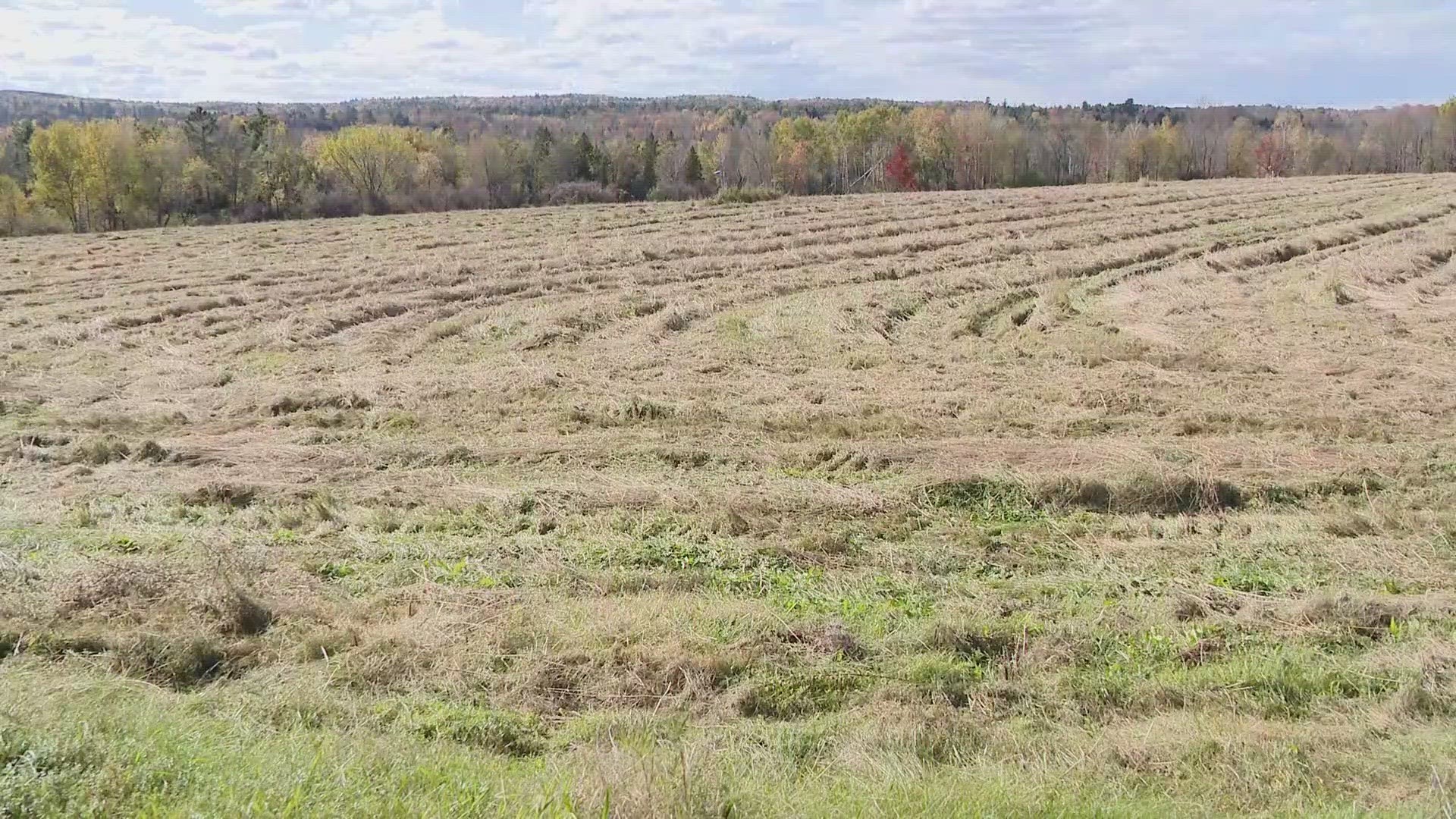UNITY, Maine — An organic vegetable farm in Unity shut down by PFAS contamination could soon provide solutions to the ongoing toxic crisis.
The source of the pollution was industrial sludge shipped to a 40-acre property and used as free fertilizer.
A state-approved practice that spanned several decades. Recently, Maine Farmland Trust purchased Songbird Farm with plans to give it a new future as a research tool.
It's been a long while since Adam Nordell set foot on the farm he and his wife Johanna Davis worked for years to build.
"It's quite difficult to return there," Nordell said quietly.
Songbird Farm was a thriving operation producing organic vegetables and grain two years ago. Then, the couple had to pull produce from the shelves after high levels of toxic chemicals known as PFAS were discovered in the water, in the soil, and inside their bodies. The pollution came from industrial sludge spread as fertilizer on the farm in the '90s... before the couple owned it.
The land the couple had to walk away from could play a key role in future research.
"Losing farmland to contamination isn't something we are willing to entertain. We want to be part of the solution," Amy Fisher, the CEO and President of Maine Farmland Trust, said.
The nonprofit recently purchased the 40-acre property and is looking to partner with researchers by springtime to plant specific crops and study how PFAS impacts them. They will also test ways to decontaminate the soil possibly.
"Some technology, some techniques that can clean up the farm so they can be safe places to grow food, safe places to live on again," Adam added.
A delegation of Mainers, including Adam and other impacted farmers and researchers, will attend a conference at Michigan State University this Sunday.
Maine Farmland Trust and the University of Maine are co-organizing the symposium with a grant from the USDA.
"It's going to bring all the top PFAS researchers across the country and around the world to explore the role of PFAS in agriculture," Fisher explained.
Songbird's research lab could be a future model for other Maine farms to sell their tainted land and a new path forward for dozens of farmers across the state.
"Hopefully, this will bring a breakthrough in the next few years," Adam said.
A daylong regional meeting focused on the impact of PFAS in agriculture will be held at Colby College on Nov. 7.
In a statement to NEWS CENTER Maine, Beth Valentine, the director of the fund, addressed PFAS contamination in agricultural settings.
"Since early 2022, the Department of Agriculture, Conservation and Forestry's Bureau of Agriculture, Food and Rural Resources (BAFRR) has provided technical and financial support to PFAS-impacted farms. For example, staff members collect water, soil, tissue (plant and animal), and milk samples, which are forwarded to laboratories for analysis. The lab results help guide recommendations for modifications to farm operations to maintain/regain viability despite PFAS. BAFRR also provides financial assistance for things like income replacement payments, clean feed for livestock, and equipment and infrastructure to help farms modify their production in response to PFAS contamination. Over 50 farms have received technical and financial assistance from BAFRR.
"The Department's existing support programs will be augmented and expanded by the $60 million PFAS Fund. A plan to implement the PFAS Fund was approved in July. Since then, DACF has established the administrative groundwork necessary to distribute funding. For instance, rules are being drafted to confirm eligibility and evaluation criteria for a refined income replacement program, no-cost technical assistance, infrastructure grants, loan assistance, purchases of PFAS-impacted farmland, research grants, blood testing, mental health services, and administrative cost grants. We anticipate holding a public hearing on these rules before the end of the year.
"We have also initiated an RFP to hire land appraisers, have a draft agreement with Maine CDC for, among other things, a study to explore whether soil is a significant PFAS exposure pathway for agricultural workers, and anticipate posting an online survey in December/January to help identify what mental health services to offer (e.g., in person or online counseling, peer support).
"Some programs, like income replacement and infrastructure payments, are being transitioned from BAFRR to the PFAS Fund (housed within the Commissioner's Office). The transition is expected to be complete by the end of the year. Newer programs, like funding for research and land purchases, will roll out gradually over 2024," Valentine said.

